A conversation with Washington activist Absa Samba: SB 5453 a product of collaboration and persistence

By Rachel Wine As the Washington Senate Bill 5453 concerning female genital mutilation/cutting (FGM/C) moves forward in the legislature, I had the honor of speaking with Absa Samba, who has been instrumental in advocating for legislation on FGM/C in Washington state. Absa’s advocacy journey began over a decade ago, when Absa was in middle school. She attended a training, which explored gender issues, and it immediately became clear that things like gender expectations, gender roles, and harmful cultural practices were connected. “I think the training… became a validation for what I’ve always felt, this inequality that existed in my society, and… I had language for what was going on, and that’s when I started getting involved in advocacy and activism for the rights of women. A big part of that became advocating against harmful cultural practices, like child marriages and female genital cutting.” Washington, where she currently lives, is one of ten remaining states without a law against FGM/C, though it is one of the highest-risk states; a 2016 study found that the Seattle-Tacoma-Bellevue metro area was the 5th highest metro area in the U.S. in terms of the size of the FGM/C-affected community. Absa’s background as an activist, and personal connection to this issue and other harmful cultural practices (she is a survivor of FGM/C), inspired her to choose FGM/C as her focus for a policy analysis class assignment. “I was just doing an assignment, and I found out through my research that there were two bills that were presented that never made it out of Committee. And I think when I noted that in my paper, my professor asked me to find out why those bills failed, and that’s when I reached out to one of the Senator’s office who had sponsored the bill in the Senate.” What began as a class assignment evolved into an opportunity for Absa to chat Senator Karen Keiser on FGM/C in May of 2022. “The Senator herself met with me and wanted to chat about the bill, the issue. And out of that conversation, I was like, okay, maybe a presentation on what FGM is would be helpful for this person, they seem really interested in it. So I opted to do a presentation, and the Senator was gracious enough to take the offer and invited other chairs of different Committees in the Senate to come to that, and it was at that point that I realized I was taking on more than I could afford to at the time. So I was connected with Mariya [Taher] and I reached out to Bettina [Shell-Duncan] and other folks and I said, “Hey, this is an opportunity to talk to these people about FGM in Washington, would you be interested in joining?” And they were kind enough to come on and help me with that presentation, and I think it was that moment that we realized, actually, this is really an opportunity to do something about this issue in Washington State.” By pulling together support from the FGM/C sphere, Absa unknowingly planted the seed for the group that would become a key stakeholder in SB 5453’s creation. Senator Keiser recognized the opportunity to do something from this initial experience; “her desire to introduce a bill on FGM/C solidified this work.” Absa began to facilitate the group working with Senator Kaiser, who was determined to loop in advocates and survivors in creating the bill. Absa would organize meetings and generate statements for the group, which eventually became the Washington Coalition Against FGM/C. The Coalition and various other stakeholders worked closely to co-author the bill, and Absa is rightfully proud of that. “We’ve worked with the Senator closely to create the bill, I think what was remarkable was how much time Senator Keiser invested in making sure the bill was the way it should be, that it speaks to the realities of communities that are affected by the issue. That it was done in collaboration with stakeholders in this issue, we [the Washington Coalition] have worked with her in the process of creating a bill to give feedback and input on what we think should be in the bill, and what shouldn’t. And working to find a common ground, so that we could work collectively. I think that can be seen in how well the bill was done and how well it’s progressing in the legislature at this time.” As SB 5453 moves to the House after passing in the Senate on March 1st, the Coalition continues to lead the drive for change. Though Absa’s goal was never to form this Coalition or even do this legislative advocacy, she has found herself here by believing in this work. The support of her fellow Coalition members, many of whom are also survivors that care deeply about this work, has also been critical; Absa has learned that “little steps and persistence will inspire others to power it along.” When considering their success, she emphasizes the importance of varied backgrounds and expertise that Coalition members bring to the table, which got things going in the right direction. “Building a team and getting various stakeholders involved in making change happen is significant. Collective voice has the power.” When asked for any advice she may have for other advocates, or anyone hoping to take a stand for something important to them, Absa had this to say: “Do something. Not doing anything is not an option. The little wins matter, and what makes the goal achievable is not entirely dependent on one individual, it takes a collective. The more you keep going, the more people buy into your goal, the closer you get to achieving the goal.” In the case of Washington, this certainly rings true. Absa Samba is a graduate student pursuing a double masters in Social Work and Public Administration at the University of Washington’s Evans School of Public Policy and Governance and the School of Social Work. She is a survivor of FGC and a passionate advocate for
The impact of Bhaiyo: How male allies work to end female genital cutting
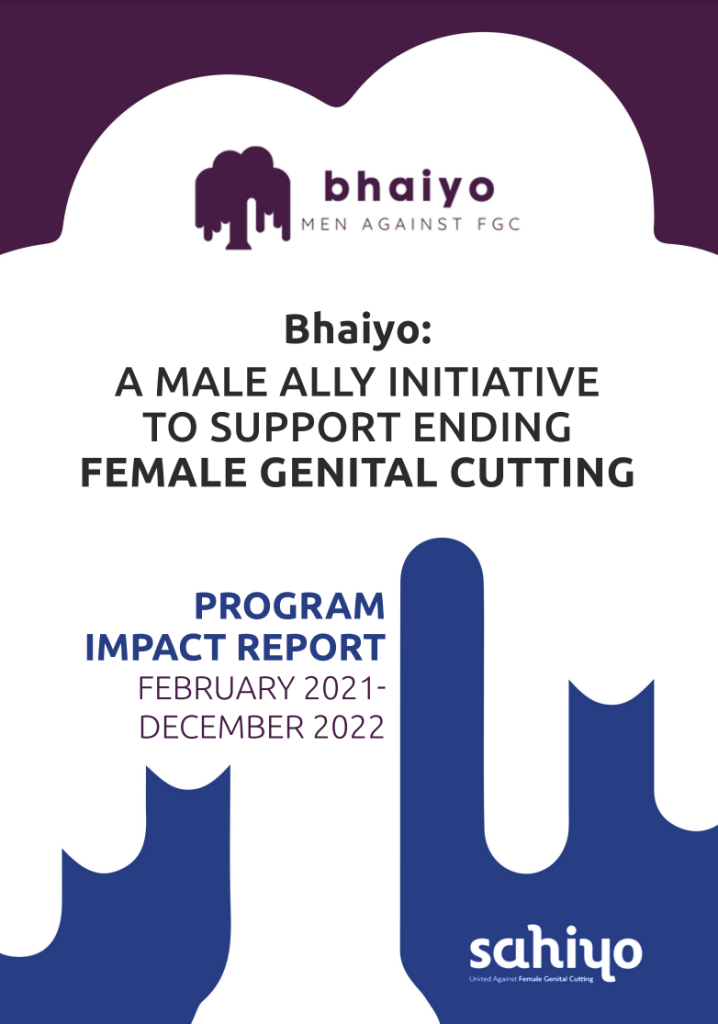
Today, on International Day of Zero Tolerance for Female Genital Mutilation/Cutting, Sahiyo is proud to release our program impact report, Bhaiyo: A Male Ally Initiative to Support Ending Female Genital Cutting. The report spans the duration of our Bhaiyo program, from its creation in February 2021 through December 2022, and covers our challenges, lessons learned, and future paths for growth. Bhaiyo, meaning ‘male friends’ or ‘brothers’ in Bohra Gujarati, was launched to create a space where male allies can collaborate, spark dialogue, and spread information about the harms of female genital cutting (FGC). In particular, Bhaiyo participants work by engaging communities at the grassroots level to address and build awareness of the harmful nature of this practice and its consequences on their loved ones and the community in general. Since the program’s launch: 15 men joined the Bhaiyo program 13,247 people engaged with our public awareness campaigns 36 people participated in our public awareness campaigns 176 people attended Bhaiyo male-engagement webinars 28 blog posts written to uplift the voices of male activists 81.3% of members have joined additional programming efforts after joining Bhaiyo February 6th is a day for activists, advocates, and stakeholders to come together, raise awareness, and advocate for the end of FGC. Today, and for the rest of the month of February, we’re uplifting the work of Bhaiyo because we’re proud of the program’s accomplishments. We hope you’ll take the time to learn more about how we’ve been engaging men in the work to support survivors and prevent FGC for future generations. “Bhaiyo allows men to have open and honest conversations about a topic they may or may not know but should be important to them. As brothers, it’s our collective responsibility to leave the world safer than we found it for those that we love. Bhaiyo aims to raise awareness to help advocates and survivors working to end FGC today.” ~ Murtaza Kapasi We also have an upcoming Bhaiyo event that is open to the public! Date: Thursday, February 23rd Time: 9:00 am EST (New York) / 7:30 pm IST (India) Who: Current Bhaiyo members & Prospective Bhaiyo members (anyone interested in supporting male engagement on the topic of ending FGC) Register: bit.ly/BhaiyoCommMeeting To join our Bhaiyo program, please fill out this application form.
The urgency of climate change: Reflecting on my conversation with activist Domtila Chesang
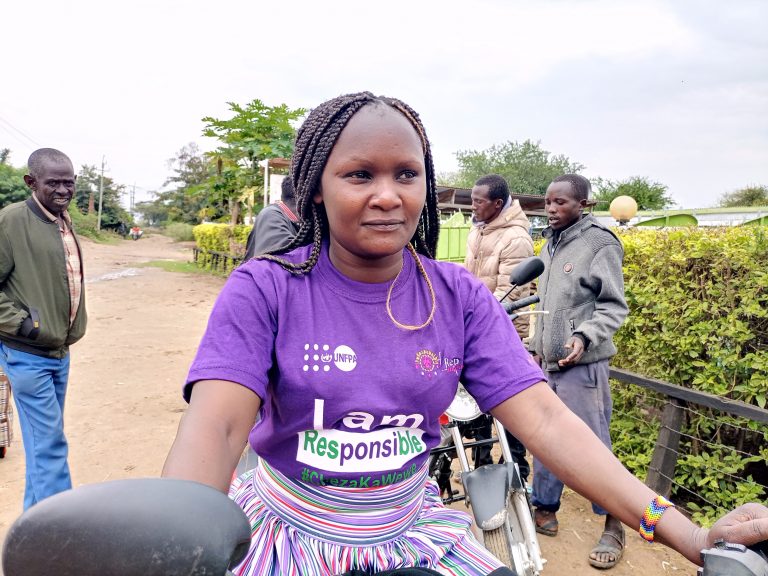
by Urvashi Sharma On a foggy day in October, I had the pleasure of speaking with Domtila Chesang, an inspired activist against female genital mutilation/cutting (FGM/C) in Kenya, and more recently a panellist on The Global Platform for Action to End FGM/C’s Climate Change and FGC webinar, to learn about her work and gain a better understanding of how climate change is impacting FGM/C. Though Domtila is not a survivor, her community is one that practices FGM/C: “I grew up in a village where everybody, all the older members of my family, the female members, had undergone FGM.” After a turn of fate allowed Domtila to witness her cousin being cut, she decided that she would not be cut. “I’m telling you one of the reasons why FGM is still happening in some parts of the communities is because of the celebration. It is a huge ceremony…There are dances. There’s singing. It’s like a one- or two-week celebration. That is not at the moment, because now it is against the law The prohibition of Female Genital Mutilation Act 2011… Nobody knows about the actual cutting and the pain and, of course, the suffering that comes after that.” Seeing this damage changed her perception of FGM/C. Luckily, her mother did not pressure her to undergo the practice. “Apart from one of my younger sisters going through it, none of the other girls from my family went through it after myself. So I became the first girl in my village to say I’m not going to be cut.” Over the years Domtila became more and more involved in the work to end FGM/C. “I got involved [in campaigning against FGM] after I went to high school because I wanted to protect more girls… By the time I was going to the university, I was already taking part in mentorships programs, and working with a group of women who had also decided to campaign against FGM… When I left university, I went straight to campaigning.” It wasn’t until I spoke with Domtila that I understood the urgent intersections of FGM/C with climate change: climate change is forcing communities to further invest in this harmful practice for their survival. “Climate change has really pushed people to the limit, beyond their limit, because… we continue to experience the worst impact of climate change, which is now forcing families to resort to the last solution to survive… We are pastoralists… So we entirely rely on livestock for survival… And now that the land has been degraded, now that there is no pasture, now that there’s no water, it’s becoming very, very scarce, and communities have been displaced.” Because FGM/C “is associated with a rite of passage… child marriage, and… acquisition of wealth,” there is a direct link to climate change. From this displacement and loss of sustenance comes the pressure on young girls to undergo FGM/C: “Girls are now at the centre of saving their families… It has become the only commodity apart from their livestock, because girls are not being extinct as livestock is. So the girls’ existence in itself is becoming a threat because right now, it’s becoming a solution to the communities.” Domtila expressed her frustration at the limits of her role in the face of this challenge: “It is really rendering me almost powerless. I cannot feed the community. I cannot provide alternative survival or livelihood to the community.” For me, this raised the question of context when it comes to advocating for values such as autonomy. In situations where survival is on the line, how do we decide who-or what- is more important? When I asked her about the long-term impacts of climate change on FGM/C, she had this to say: “There’s nothing that is being done at the moment. Very little, just a conversation at the global level, that is slightly prevalent at the national level, and there’s nothing at the community level. It is still a theory. And these people are not yet connecting the dots between climate change and all the other impacts. And I am here as a front-line advocate, but I do not really understand the full degree of climate change and how we can mitigate it.” Despite this vast problem and how it impacts her work to end FGM/C, Domtila cannot imagine dedicating her life to any other social issue. “I think everything about my work is valuable and exceptional… What makes me smile all the time is that seeing all these girls shining in their schools and seeing that all these girls have forgotten about FGM.” After our conversation, I was left with a combination of admiration, food for thought, and gratitude for the chance to learn from Domtila. I gained a new appreciation for the role of an activist, re-evaluated my own developing role, and was inspired by Domtila’s fierce promise of protecting the girls in her community. Domtila Chesang has been advocating for girls and women’s rights since 2014 through various initiatives, including working to end female genital mutilation (FGM), child marriage, and other harmful cultural practices. As a full time women’s rights advocate, Domtila founded I_Rep Foundation, a community-based organisation that serves to sensitise her community on the harms and negative implications of the practices by creating awareness and providing platforms at the community levels for learning and dialogues. I _Rep Foundation is currently directly and indirectly providing educational scholarships to close to 100 girls in different schools. Overall, this work has prevented thousands of girls from the cut and supported her community with the capacity to protect their daughters from violence. Domtila with a reformed cutter in Otiot downing her tools (2021).
Sahiyo’s first Youth Meeting
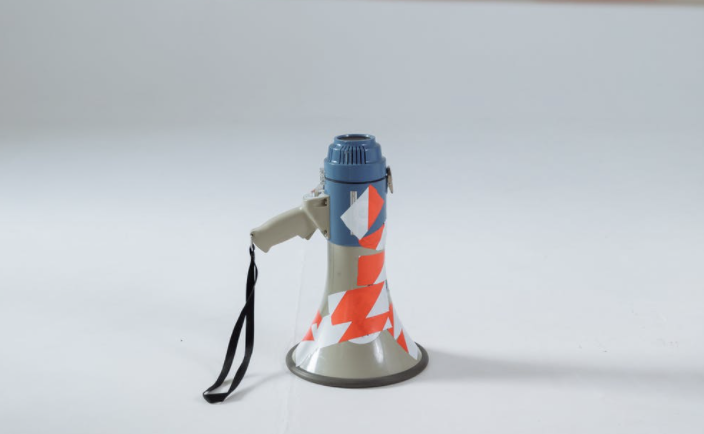
This March, Sahiyo conducted its first ever Sahiyo Youth Meeting. Young activists are an essential part of the movement to end FGC, as they offer a fresh perspective and are eager to challenge gender norms and harmful cultural practices. Acknowledging this, volunteer Hunter Kessous started an initiative to create a supportive network of Sahiyo youth. At the first meeting, staff, interns and volunteers between the ages of 15 and 24 came together to discuss their journeys in working to end FGC and future aspirations. Additionally, the Sahiyo members decided on some goals for our new network, including a learning environment, an emotional support space, and an opportunity to find mentors. Strengthening the connections amongst Sahiyo’s youth activists is a step towards forging the path for the next generation of leaders in the movement to end FGC. The Sahiyo Youth Meetings will become a monthly tradition for any Sahiyo members looking for an educational and inspirational community of young leaders.
Sahiyo’s new book club officially launches in October
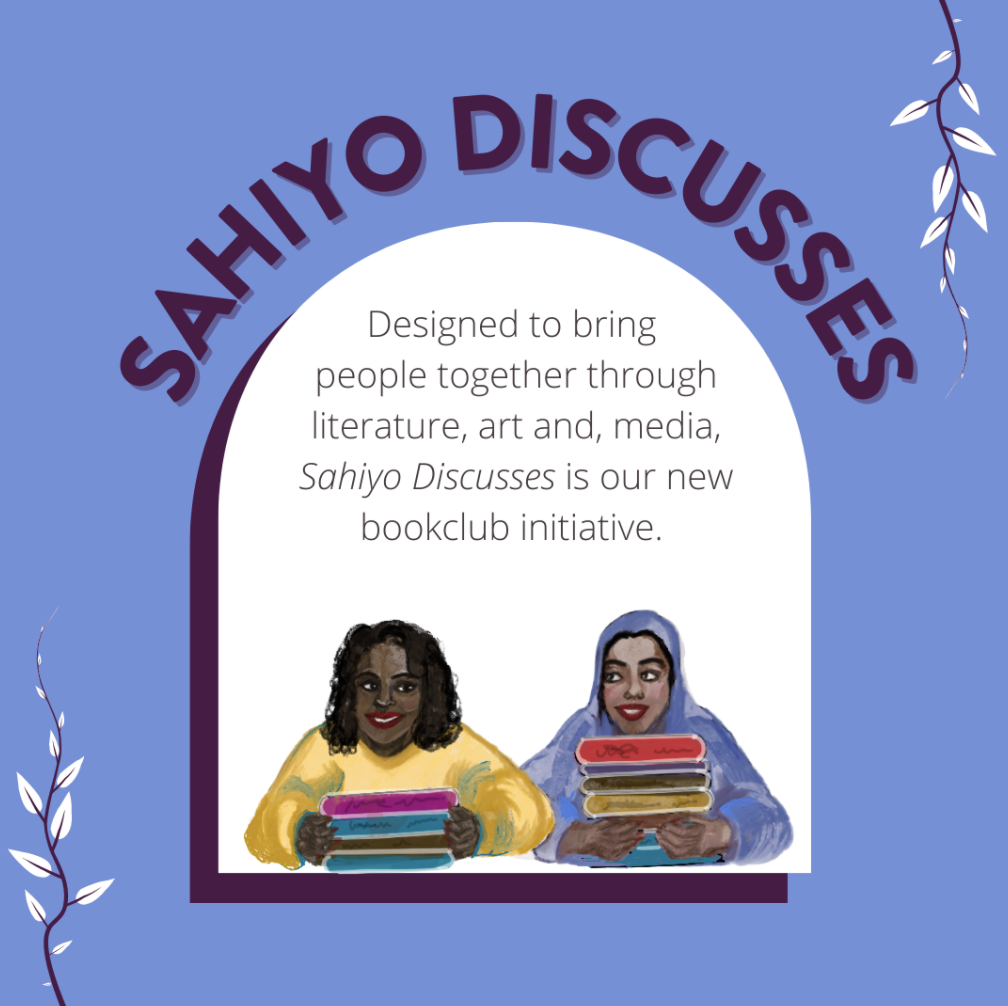
Event: Sahiyo Discusses: Seven by Farzana Doctor Date: October 13th, 2021 Tme: 8 pm EST Registration Link: https://www.flipcause.com/secure/cause_pdetails/MTI0Mzc5?mc_cid=58973cee37&mc_eid=UNIQID Starting this October 2021, Sahiyo is officially launching our book club, Sahiyo Discusses, with our inaugural event, Sahiyo Discusses: Seven by Farzana Doctor. Designed to bring people together through literature, art, and media, this club will host quarterly meetings to bring together activists and allies in Sahiyo’s network to discuss the chosen piece of media. With themes ranging from feminism, equality, bodily autonomy, women-centered movements, and sexual empowerment – this club will focus on uplifting the stories and experiences of women everywhere. Our first meeting will be held on October 13th, at 8 pm EST over Zoom. We will be joined by Farzana Doctor, who will talk about her novel, Seven. Seven explores themes of family, culture, politics, and FGM/C with a surprising ending. Sahiyo Discusses members will have the opportunity to discuss the book with Farzana as well as ask pertinent questions. Admission to Sahiyo Discusses will be on a pay-what-you-can basis, with a recommended suggested $10.00 USD donation per event. If you or anyone in your network is interested in joining us please register and donate here. Thank you all for your continued dedication to Sahiyo’s mission, and we look forward to seeing you all there!
Understanding female genital mutilation/cutting: An ally’s call for action

By: Farhanaz Hazari Age: 18 My fight against female genital mutilation/cutting (FGM/C) can be traced back to the day my mother and sister had a discussion with me on how young girls from the age of 7 are subjected to FGM/C or khatna, as it is known in the Bohra community. They explained it in simple terms, as I was still in school and unfamiliar with the practice, and guided me on how to approach the subject. They educated me on who conducts this act and where it is conducted and for what reasons. They told me that it was taboo to talk about it freely and also to never ask if anyone had been subjected to khatna. After hearing this from two people that are close to my heart, I trusted their word and never asked anyone about it. I had no idea little girls were subjected to such pain and trauma. They are children, after all. Aren’t they supposed to play with dolls and fight for the window seat on the bus ride home? Why are people insisting on controlling girls from such a young age? Why are they putting them through this mental trauma? Why isn’t anyone speaking up against it? All these questions were flooding my mind and all I wanted was someone to tell me this isn’t happening anymore. To think I was hurt and frustrated would be an understatement. I was angry and sad at the same time. I thought this is a tradition that had been shunned and looked down upon by many communities around the world. But to my misery that was not the reality. The next time I came across the word khatna in one of the books in The Princess Trilogy by Jean Sasson, it brought me to tears. At that point I knew I had to do something to raise awareness against it or simply make it known to people that it is a violation of a girl’s body. I read up about female genital mutilation/cutting and learned about how its roots were traced back to Egypt. I learned about the four types and how there is no scientific evidence to help women medically in any way. Being a student of law, I have the opportunity to speak up and back my reasoning with legal knowledge. FGM/C infringes upon the girl child’s human rights, such as the right to bodily autonomy, equality, right to life and personal liberty, which includes the right to be free from any form of violence. After the young girls are cut, they may die, or bleed continuously and/or develop an infection, which violates their right to have a healthy life under Article 21 of the Constitution of India. Justice Chandrachud also stated, “One has supreme authority over genitalia. It is central to one’s identity, dignity and autonomy.” The recognition of the harms of FGM/C is increasing day by day as many are filing petitions, raising their voices and sharing their stories with the help of nongovernmental organizations. I have the opportunity to voice my thoughts against the practice with the help of Sahiyo, and for that I am eternally grateful. The Pakistani activist Malala Yousafzai said, “There’s a moment when you have to choose whether to be silent or to stand up.” I say stand up. Raise your voice and help put an end to FGM/C.
Remembering Egyptian feminist’s heroic fight against female genital cutting
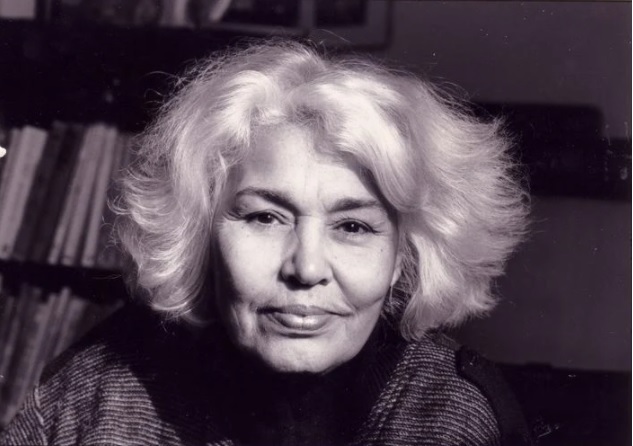
By Madrisha Debnath Despite the fact that the mother of Egyptian Feminist Movement Nawal El Saadawi died at age 89 earlier this year, her fight against patriarchy lives on. Born in 1931, she was an Egyptian writer, psychiatrist, physician, and a powerful feminist activist who fought against female genital mutilation/cutting (FGM/C) for many years. In her autobiography, she wrote as a survivor of FGM/C, “Since I was a child that deep wound left in my body has never healed.” She began her activism in her college days against the cultural institution of the state that promoted FGM/C. In her opinion, when religious institutions gain power, oppression against women of the region increases, and she believed that women are oppressed under all religious institutions. She wrote 47 books on issues that women face in Egypt. Even as she spent three months in prison, she wrote Memoirs from the Women’s Prison with an eyebrow pencil on toilet paper. She is popularly known as the Simone de Beauvoir of the Arab World. El Saadawi was the founder and president of the Arab Women’s Solidarity Association and co-founder of the Arab Association for Human Rights. She has been awarded an honorary doctorate from Vrije Universiteit Brussel, Belgium; Université Libre de Bruxelles, Belgium; and the National Autonomous University of Mexico. She won the North-South Prize from the Council of Europe in 2004, Stig Dagerman Prize in 2011, and has been featured in BBC’s 100 women of 2015 to name a few. In 1972 she wrote the book Women and Sex in which she criticized FGM/C. Her book became a foundational text of second-wave feminism. The book was banned in Egypt and consequently, she lost her job as the director general of public health for the Egyptian Ministry of Health. In 1980 she yet again wrote about her experience of undergoing a cliterodectomy in her book The Hidden Face of Eve: Women in the Arab World. She was the founder of the Health Education Association and the Egyptian Women Writers’ Association and was the Chief Editor of Health Magazine in Cairo, and Editor of Medical Association Magazine. As she graduated as a medical doctor from Cairo University in 1955 she observed that women’s physical and psychological problems are actually deeply rooted in the religious and cultural institutions they belong to. She connected oppressive cultural practices and norms of the society to the systemic oppression under the structures of class, patriarchy, and imperialism. While working as a doctor in Egypt she became aware of the issue of domestic violence and inequalities that women face in their day to day life. After trying to protect one of her patients from domestic violence, she went back to Cairo and eventually became the director of the Ministry of Public Health. As a feminist and a doctor, she was against male circumcision. In her view, she did not separate cutting children from a physical or social point of view. In an interview with The Independent she said, “I am going to carry on this forever.” Her legacy will live on for future generations to consider.
Women should not be harmed because of societal norms
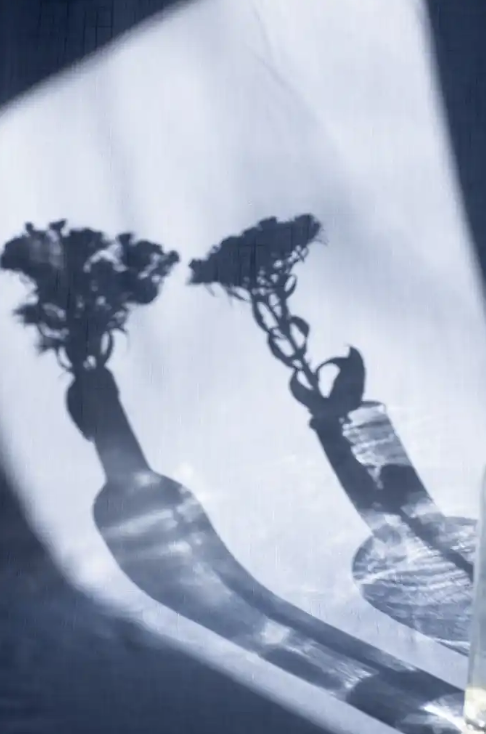
By Sakshi Rajani Age: 17 Country: India Female genital cutting (FGC): the term sounded ruthless the first time I heard it. It was not long ago that I was introduced to this term. While going through my Instagram feed, I read a story about a law student who was spreading awareness about FGC, and I was clueless about what it was. Immediately I searched this issue online and learned how serious it was. Then, I pondered why I hadn’t known about it earlier. Why had no one around me talked about it? Upon researching it further, I came to know how deeply rooted this problem was in communities and cultures. My will to do something to end it became stronger. I looked for organisations working to end FGC and came across Sahiyo. I soon joined the organisation. The first time I spoke about FGC to my friends they said, “What is that?” I wasn’t surprised by their reaction because I, too, was unfamiliar with it. I asked them to research it on their own, and then I explained more about the harms. I told them the World Health Organization and the United Nations declared FGC a human rights violation. Then I introduced them to the groundbreaking Mumkin app created by two co-founders of Sahiyo, Priya Goswami and Aarefa Johari, where my friends could learn more valuable information about this issue. What are the hurdles in encouraging abandonment of or ending FGC? FGC is also often seen as a necessary ritual for initiation into womanhood and can be linked to cultural ideals of femininity, purity and modesty. A strong incentive to continue the practice is family pressure to adhere to conventional social norms. Women who break from this social norm can face condemnation, abuse and rejection from family or community members. Patriarchal society can help perpetuate it generation after generation. Female genital cutting should stop immediately, as a woman should have full rights over her body and no woman should be harmed because of societal norms and expectations. I am now an advocate to make sure FGC ends.
Using Storytelling to Shift Social Norms and Prevent FGM/C: Event Reflection
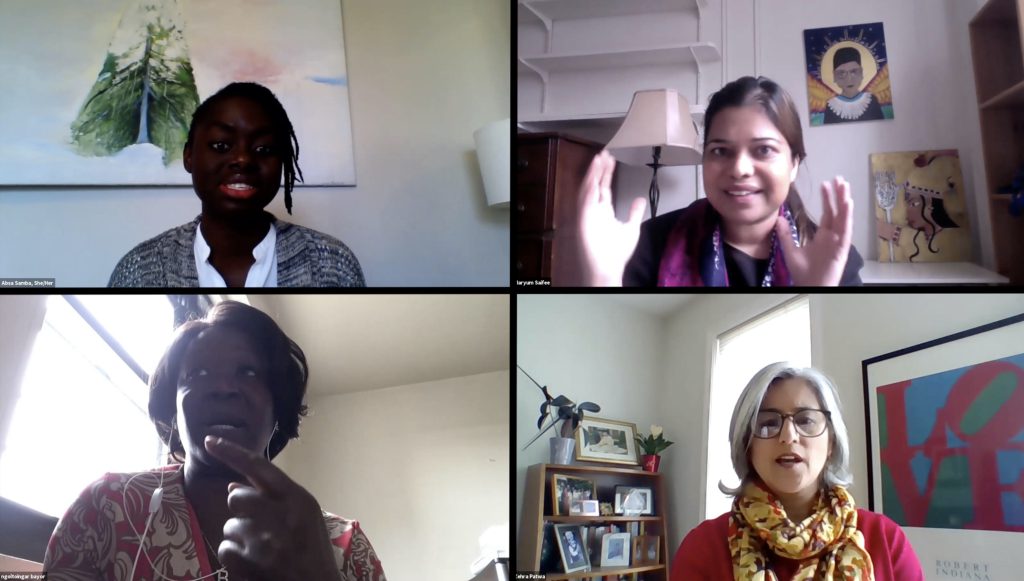
By Cate Cox Sahiyo was honored to join StoryCenter to host the webinar, “Using Storytelling to Shift Social Norms and Prevent FGM/C,” during a parallel event for the 65th session of the United Nations Commission on the Status of Women on March 16th. Sahiyo and StoryCenter staff had the opportunity to introduce the collaborative Voices to End FGM/C project, which centers on storytelling by survivors and those affected by female genital mutilation/cutting (FGM/C) as a tool to challenge social norms that perpetuate the practice. From outlining the storytelling process to hearing from the participants themselves, the parallel event offered an in-depth exploration of the power that storytelling has to heal and create change on a global scale. Mariya Taher, a co-founder of Sahiyo and the U.S. Executive Director began by giving the audience an introduction to Sahiyo’s work and the Voices project. Next, the co-founder of StoryCenter’s Silence Speaks program, Amy Hill, explored the methodology behind the Voices project, and why storytelling in general can have such a big impact on individuals, communities, and policy. Former Voices participants Aarefa Johari, Severina Lemachokoti, Sunshine Bayor, Zehra Patwa, and Maryum Saifee shared their experiences with the project. Both organizations introduced three new storytellers: Absa Samba, Hunter Kessous, and Somaya Abdelrahman. After watching their amazing Voices videos which will be released in May, each participant had the chance to answer a few questions about their experiences and their plans for moving forward. Panelists emphasized the importance of survivor-centered advocacy, mental health, and trauma services for survivors, as well as encouraged the audience to become involved in advocacy. [youtube url=”https://youtu.be/cZL9agWVUfE”] Panelists also answered select audience questions about their work and experiences of creating their videos. Intimate and brave, the panelists opened up about their fears of backlash and the ways that their videos still impact them. Both organzations shared resources with the audience to further educate themselves about the work Sahiyo and Storycenter are doing and to learn more about the Voices to End FGM/C project. “Using Storytelling to Shift Social Norms and Prevent FGM/C” was an ode to the power storytelling has to empower communities to abandon FGC and support survivors’ healing. It also highlighted the amazing work everyone at Sahiyo and StoryCenter are doing in their own capacity to advocate for women’s rights and shined a light on the often-overlooked work being done by grassroots organizations across the world. Watch the recording of this event. To learn more about Sahiyo’s work, Sahiyo staff will be hosting a webinar in partnership with The US End FGM/C Network and the Asian Pacific Institute on Gender-Based Violence on April 15th, at 2:30 pm EST over Zoom.
Four women who were pivotal to the movement to end female genital cutting

By Megan Maxwell The movement to end female genital cutting (FGC) has been in effect starting as far back as the latter half of the 19th century through the voices, writing, and research of women who have worked for the rights of women and girls. FGC is present in 92 countries. In honor of Women’s History Month, Sahiyo is honoring four women from Egypt, India, Senegal, and Austria who changed the world for women and girls. Nawal El Saadawi & her brutal honesty Nawal El Saadawi, a doctor, feminist and writer, who was born in a community outside of Cairo, Egypt, was a survivor of FGC. She campaigned against FGC and for the rights of women and girls throughout her life. She started by speaking out against her family’s preconceived notions about the trajectory of a girl’s life and then used her voice to condemn FGC and women’s rights abuses through her books. She wrote many books including The Hidden Face of Eve, a powerful account of brutality against women, and saw women live those realities detailed in the book within the communities in which she worked as a medical doctor. She was a crusader but her work was banned. She was imprisoned and suffered death threats. Through her work, she championed for the rights of girls and women globally for decades. She died on March 21st at 89 years old. Rehana Ghadially & All for Izzat In 1991, Rehana Ghadially wrote an article entitled All for Izzat in which she examined the prevalence of female genital cutting and its justification. For this article, she interviewed about 50 Bohra women and found the three most common reasons given for FGC: it is a religious obligation; it is a tradition; and it is done to curb a girl’s sexuality. Through these interviews, Ghadially revealed that the procedure of FGC was anything but symbolic. “The girl’s circumcision has been kept an absolute secret not only from outsiders but from the men of the community,” she said. Ghadially experienced FGC when she was very young. Her research allowed her to share with the world the reality of what Bohra girls and women go through as a result of FGC. Ndéye Maguette Diop & the Malicounda Bambara community The community of Malicounda Bambara in Senegal, West Africa, was substantially influenced by the Community Empowerment Program (CEP): a program established by Tostan that engages communities in their languages on themes of democracy, human rights (including female genital cutting), health, literacy, and project management skills. In July of 1997, the CEP empowered the women of Malicounda Bambara to announce the first-ever public declaration to abandon female genital cutting to the world. Ndéye Maguette Diop was the facilitator for the CEP in Malicounda Bambara. She guided them through the program, which is designed to not pass judgment on the practice, but simply to provide information regarding FGC and its health risks. Diop used theater, a traditional mode of African communication and arts, as a means to better facilitate the exchange of ideas. “The women didn’t have any knowledge of these rights beforehand and had never spoken of FGC between themselves,” Diop said. As the result of reenacting a play, these women started to talk about FGC frequently with Diop and she said they “decided to speak about the harmful consequences on women’s health caused by the practice with their ‘adoptive sisters’ [a component of the CEP], as well as with their husbands.” Thanks to Diop, the conversation on FGC was opened up to the women of Malicounda Bambara. They took it upon themselves to investigate within their community until they concluded that the practice should be abandoned. Fran Hosken & her ideas of global sisterhood In 1975, Fran Hosken began writing her newsletter, Women’s International Network News where she reported on the status of women and women’s rights around the globe. The tagline for her newsletter was, “All the news that is fit to print by, for & about women,” and it featured regular sections on Women and Development, Women and Health, Women and Violence, and Female Genital Mutilation (FGM). Every issue of her newsletter had a section on FGM, including names and addresses for her subscribers to get more information on activities surrounding FGC around the world. Hosken was an American feminist and writer, but she was very involved in the livelihoods of women and girls around the globe.Her newsletter became popular for its research into female genital cutting and she ended up writing The Hosken Report: Genital and Sexual Mutilation of Females in 1979. In her book, she reports on the health facts, history, The World Health Organization’s Seminar in Khartoum, The Politics of FGM: a Conspiracy of Silence, Actions for Change, Statistics, Economic Facts, and case histories from several African and Asian Countries as well as the western world. Fran Hosken’s writing and research were extremely influential in the movement to end female genital cutting and continues to be in the modern movement.
